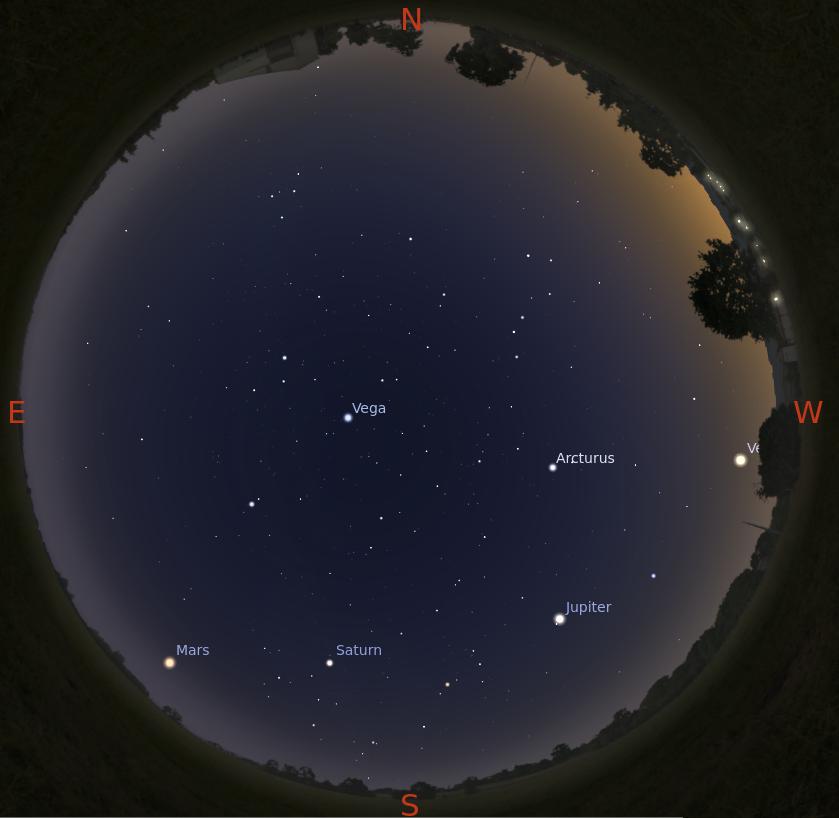
Also available in reverse-color version.
It was a nice night to see planets! Some 70 to 80 visitors came to look at Jupiter, Saturn, Mars, and M13 through our telescopes. The International Space Station was a big hit, too, as it lit up the sky for several minutes between 10:15 and 10:20 PM.
Special thanks to our wonderful volunteers:
Some handy guides for this evening's skygazing follow.
What will you see in the sky at around 9:30 PM?

Also available in
reverse-color version.
We probably won't see much surface detail on Mars, but here are a few useful facts about the current close approach:
All four of Jupiter's large moons will be visible tonight:
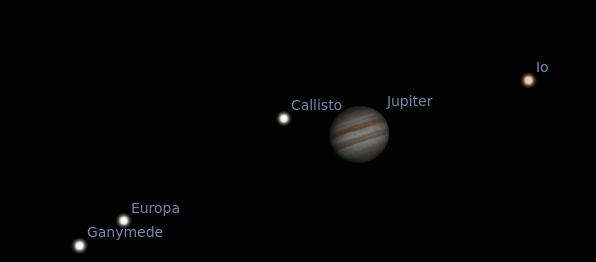
Also in a
reverse-color version
We might see three or four of Saturn's satellites; Titan is by far the brightest.
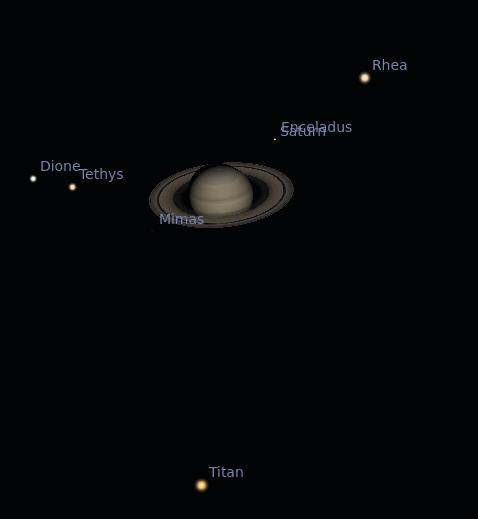
Also in a
reverse-color version
We can also watch out for two bright (and one faint) artificial satellites circling the Earth. First, we'll see a brief, 10-second flash of light as sunlight bounces off the shiny metal antenna of an Iridium communications satellite and down to the Rochester area, at 9:14 PM. Look just east of the bright star Vega.
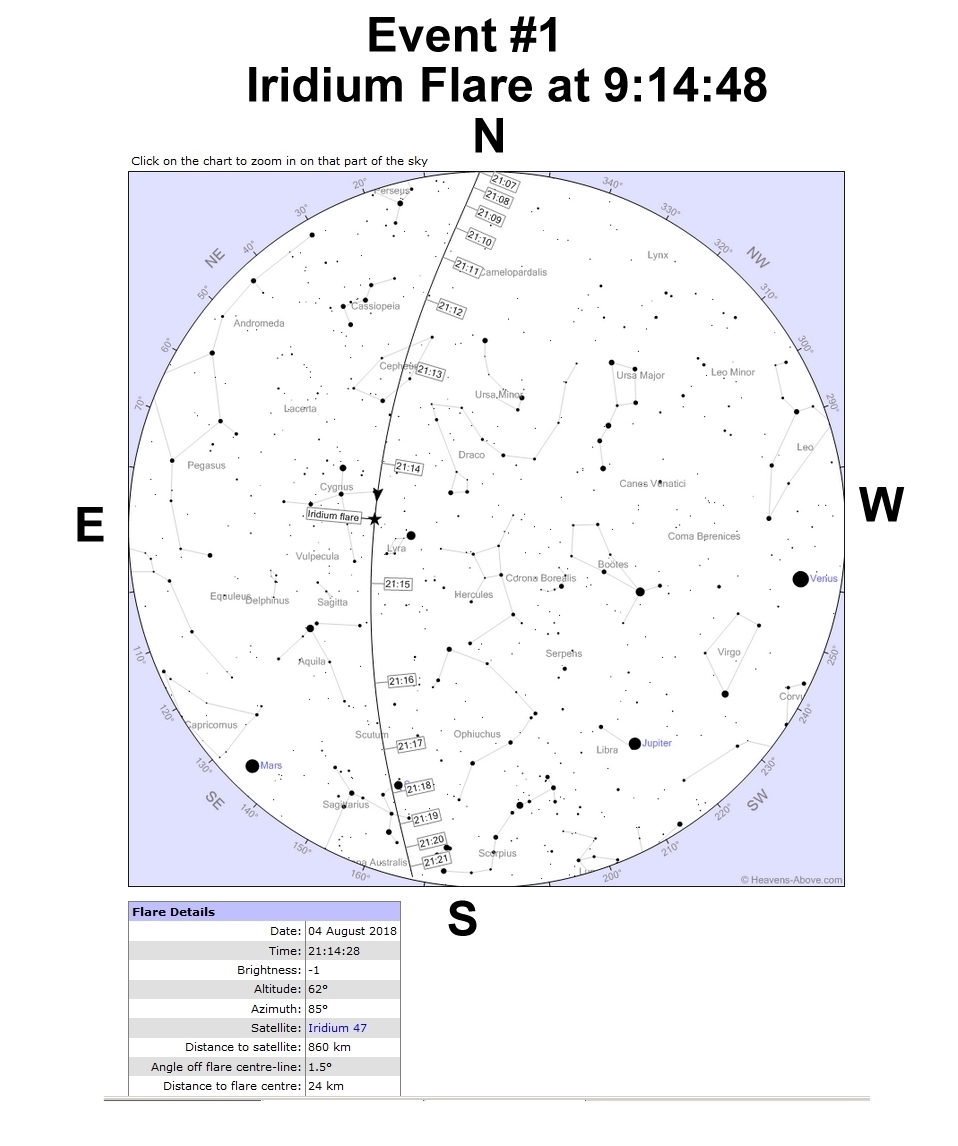
Image created by Tracy Davis using the
Heavens Above site
Just two minutes later, at 9:16 PM, the satellite Cosmos 1633 will fly overhead, also passing close to the bright star Vega.
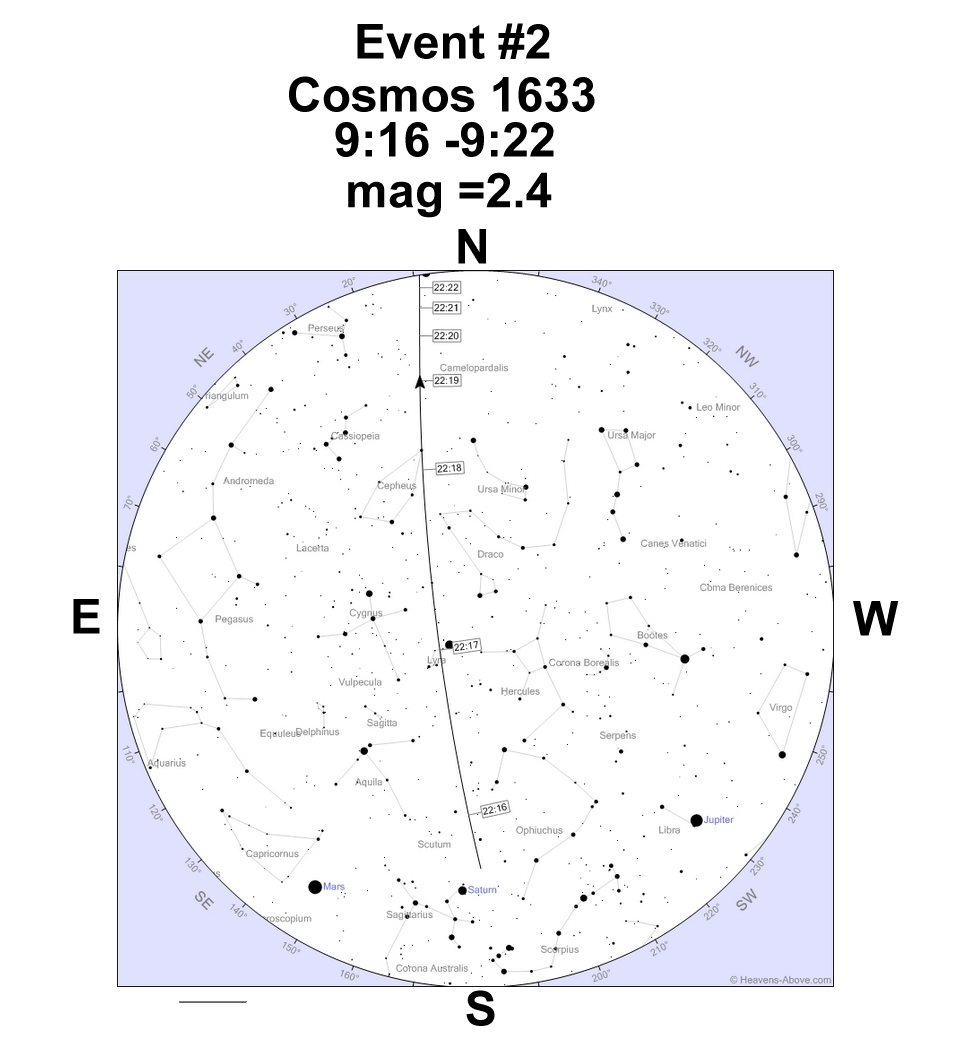
Image created by Tracy Davis using the
Heavens Above site
Finally, about one hour later, at 10:14 PM, the International Space Station will slowly coast across the sky from north-west to south-east, disappearing into the Earth's shadow just before it reaches Aquila the Eagle.
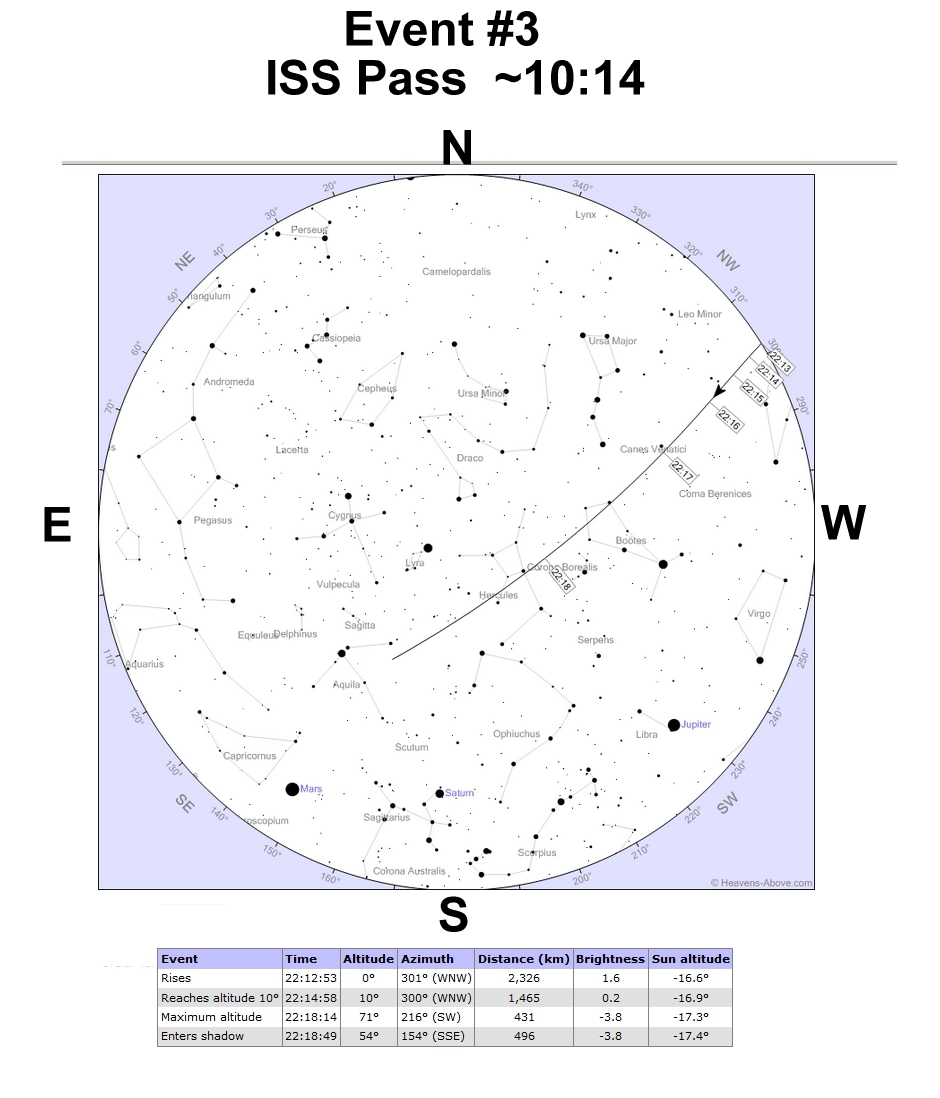
Image created by Tracy Davis using the
Heavens Above site
I made a little questionnaire for visitors; perhaps some will be inspired to answer the questions.
Last modified 8/05/2018 by MWR.